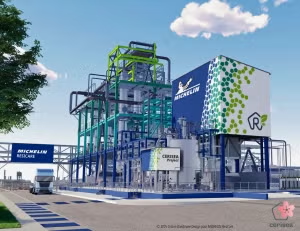Kraton (The Woodlands, Tex.; www.kraton.com) is proud to join the CERISEA Project, an initiative led by Michelin and its subsidiary to establish a manufacturing facility that will accelerate the development of 5-HMF (5-Hydroxymethylfurfural). Derived from sugar chemistry, 5-HMF is a biobased molecule that provides a renewable alternative to fossil-based ingredients used across various industries, including tires, coatings, adhesives, and surfactants. This project marks the first industrial-scale production of 5-HMF in Europe, with the new French facility expected to produce 3,000 tons annually. Scheduled for completion in March 2029, the project has received $20 million in funding from the European Union’s Horizon Europe Research & Innovation Program and the Circular Bio-based Europe Joint Undertaking.

As one of just 12 selected to participate, Kraton has been awarded a share of the grant to support the project’s research and development efforts focused on commercializing 5-HMF and converting it into high-performance, sustainable materials for new applications.
The collaboration reflects Kraton’s ongoing commitment to advancing circular and biobased innovation. As the inventor of styrenic block copolymers (SBC) and the world’s largest producer of pine chemicals, Kraton has a long-standing legacy of creating sustainable, high-performance products. Our portfolio features a diverse range of biobased solutions, including REvolution™ Technology, SYLVATRAXX™, and SYLVACOTE™, designed to enhance sustainability and performance across applications like adhesives, tires, coatings, and road markings. With deep expertise in renewable chemistry and a strong commitment to innovation, Kraton continues to support industries in their transition toward a more sustainable future.
Learn more about the project here: https://cerisea-project.eu/